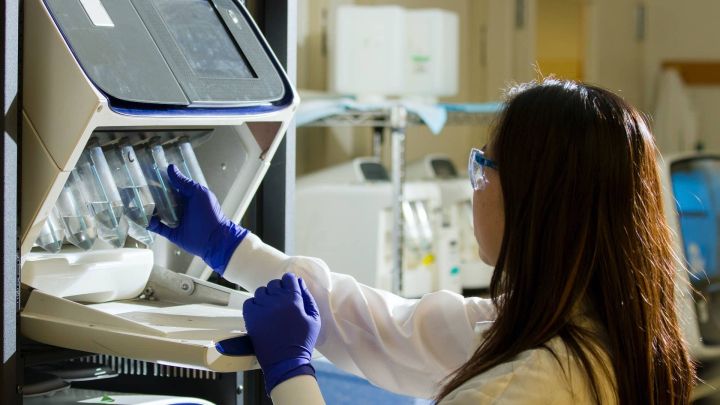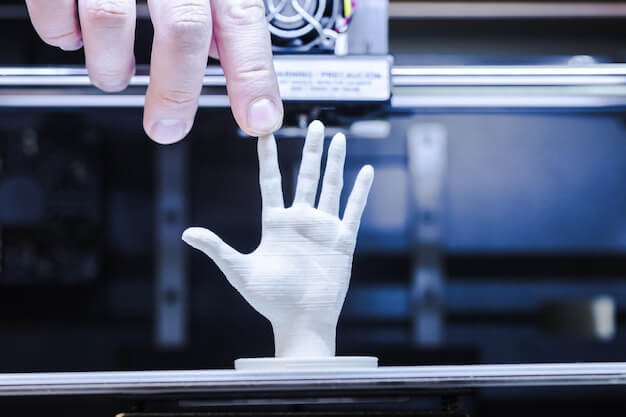Apparatus
Immune And Astrazeneca Launch Strategic Research Collaboration To Accelerate Drug Target Discovery
The collaboration aims to improve the efficiency of the drug discovery pipeline by leveraging industry-leading capabilities to identify genetic variants that cause human disease.

Core Tip: Aims to improve the efficiency of the drug discovery pipeline by leveraging industry-leading ability to identify genetic variants that cause human disease
By World Health Care 11 October 2022 - InMENA (NASDAQ: ILMN), a global leader in genetic sequencing and microarray technology, announced a strategic research collaboration with AstraZeneca, a science-driven global biopharmaceutical company, that will combine their strengths in artificial intelligence (AI)-based genome interpretation and genome analysis technologies and industry expertise to accelerate the discovery of drug targets. The collaboration will assess whether the combined framework of these technologies can improve the effectiveness and confidence of target discovery, leading to promising drugs based on human genomic information.

Joydeep Goswami, Chief Strategy and Corporate Development Officer and Acting Chief Financial Officer of Inmena, said: "Both Inmena and AstraZeneca are uniquely positioned to improve the efficiency of the drug discovery pipeline by joining forces and leveraging their industry-leading expertise to identify genetic variants that cause human disease. By identifying genes associated with human disease, the combined framework is expected to be used to prioritise drug candidates and increase the likelihood of drug approval."
The collaboration leverages InMENA's next-generation AI-based interpretation tools - PrimateAl and SpliceAl - in combination with AstraZeneca's analytical framework for rare variant genome discovery and AI tools, including JARVIS and computer prediction tools (error tolerance). As part of the research collaboration, the AstraZeneca Genomics Research Centre will use a framework combining AI-based tools from both companies to analyse large-scale multi-omics datasets from its bioinformatics database. These complementary AI tools can more reliably identify the genetic variants that cause human disease, a crucial step in the process of developing effective and safe therapies.
Slavé Petrovski, Head of AstraZeneca's Genomics Research Centre, Discovery Science Centre and R&D Centre, said: "The continued innovation of AI tools and frameworks that apply to the evolving medical research resources in human genomics, transcriptomics and proteomics will enable us to solve some of the tough problems and help us achieve higher success rates in discovering new drug targets , while characterizing the patient populations most likely to benefit from the therapies we discover."

Alex Aravanis, Chief Technology Officer of Inmena, said, "The next generation of drug discovery is at the intersection of human genetics and AI, which makes this collaboration potentially a very pivotal research collaboration combining Inmena's outstanding ability to decipher genomes at scale with AstraZeneca's extensive capabilities in large-scale human genetics research."
The research collaboration focuses on the ability to deliver differentiated performance for a broad range of human disease studies through a combined framework. Once the collaboration is successful, the two companies will evaluate opportunities for long-term collaboration.
-
![]()
![]() ApparatusDec 23, 2024
ApparatusDec 23, 2024Immune And Astrazeneca Launch Strategic Research Collaboration To Accelerate Drug Target Discovery
-
![]()
![]() ApparatusDec 22, 2024
ApparatusDec 22, 2024The 3D Medical Application Center of the U.S. Army customized assistive devices and artificial limbs for 3D printing of veterans
-
![]()
![]() ApparatusDec 21, 2024
ApparatusDec 21, 2024J. Enzyme Inhib. Med. Chem. | Protac Targeting Aimp2-Dx2: a New Therapy For Lung Cancer
-
![]()
![]() ApparatusDec 20, 2024
ApparatusDec 20, 2024Canada has developed a hand-held detector to help reduce the use of antibiotics
-
![]()
![]() ApparatusDec 19, 2024
ApparatusDec 19, 2024Check breast cancer like drinking and driving: breath detector capable of diagnosing various diseases



